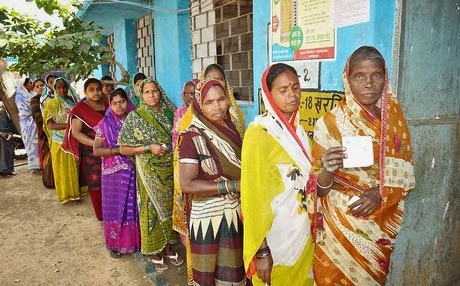By K Shiva Shanker | ENS - HYDERABAD Published: 02nd February 2014 07:55 AM
Kevin Panmei from Northeast who lives in Hyderabad | Express Photos
Natives of North-eastern states living in the city say that they face discrimination even here, however, it is much less here when compared to other states.
Around 800 students and employees from Kuki community and approximately 300 from Nagaland stay in the city besides people from other North-eastern states.
A day after a student from Arunachal Pradesh was beaten up in Delhi which led to his death, Express spoke to the students from north-east, who are either pursuing studies or are working here.
“I stayed in Delhi, Bengaluru and Mumbai before coming to the city. We face discrimination everywhere and we are treated as foreigners in our country. Even here, people from North-east are discriminated against, they call us names, but fortunately it is far less compared to other states. People are warm and welcoming here. I hope the situation becomes better” said Francis O Haokip, president of Kuki Students’ Organisation, Hyderabad.
He added that when such incidents of discrimination or victimisation take place, speedy justice will bring them some comfort and confidence.
“In addition if people from other communities support us during such incidents, it will be of support to us,” Francis said. He said for cultural festivals or other programmes of the community which are organised in the city, they invite localites so that they get senitised to their culture.
“During our orientation program, we ask students who are new to the city to speak to people from other communities and not to alienate themselves from others,” added Francis.
Corroborating the opinion, a native of Meghalaya who works in the city said that an increasing number of students from North-east choose to shift to southern part of India. “Some people do go to Delhi, but it is because they do not have an option. If given a chance, they will shift to southern states like Chennai, Bengaluru and Hyderabad,” he said.
However, he pointed out that women from the states are discriminated and physically abused in the interior parts of the city. “Auto drivers and youngsters misbehave with women from the north-east. Sometimes, it becomes very disgusting” he said.
“People come and ask me if I am from Malaysia or Indonesia, it might be because of my looks. But I don’t think I need to get upset over this,” said Kevin Panmei who lives in the city.
Speaking about her experience of staying in the city, Gabriela Chongloi, a student at English and Foreign Languages University (EFLU), Hyderabad, said, “Being a woman and having experienced Delhi for about a year, I find Hyderabad way better and safer. Here, I personally have never faced any serious ethnic discrimination apart from being looked at out of curiosity. But what irks me is when kids call me Chinese or Japanese. They should have been taught better”.
Kevin Panmei from Northeast who lives in Hyderabad | Express Photos
Natives of North-eastern states living in the city say that they face discrimination even here, however, it is much less here when compared to other states.
Around 800 students and employees from Kuki community and approximately 300 from Nagaland stay in the city besides people from other North-eastern states.
A day after a student from Arunachal Pradesh was beaten up in Delhi which led to his death, Express spoke to the students from north-east, who are either pursuing studies or are working here.
“I stayed in Delhi, Bengaluru and Mumbai before coming to the city. We face discrimination everywhere and we are treated as foreigners in our country. Even here, people from North-east are discriminated against, they call us names, but fortunately it is far less compared to other states. People are warm and welcoming here. I hope the situation becomes better” said Francis O Haokip, president of Kuki Students’ Organisation, Hyderabad.
He added that when such incidents of discrimination or victimisation take place, speedy justice will bring them some comfort and confidence.
“In addition if people from other communities support us during such incidents, it will be of support to us,” Francis said. He said for cultural festivals or other programmes of the community which are organised in the city, they invite localites so that they get senitised to their culture.
“During our orientation program, we ask students who are new to the city to speak to people from other communities and not to alienate themselves from others,” added Francis.
Corroborating the opinion, a native of Meghalaya who works in the city said that an increasing number of students from North-east choose to shift to southern part of India. “Some people do go to Delhi, but it is because they do not have an option. If given a chance, they will shift to southern states like Chennai, Bengaluru and Hyderabad,” he said.
However, he pointed out that women from the states are discriminated and physically abused in the interior parts of the city. “Auto drivers and youngsters misbehave with women from the north-east. Sometimes, it becomes very disgusting” he said.
“People come and ask me if I am from Malaysia or Indonesia, it might be because of my looks. But I don’t think I need to get upset over this,” said Kevin Panmei who lives in the city.
Speaking about her experience of staying in the city, Gabriela Chongloi, a student at English and Foreign Languages University (EFLU), Hyderabad, said, “Being a woman and having experienced Delhi for about a year, I find Hyderabad way better and safer. Here, I personally have never faced any serious ethnic discrimination apart from being looked at out of curiosity. But what irks me is when kids call me Chinese or Japanese. They should have been taught better”.
Source: The New Indian Express








